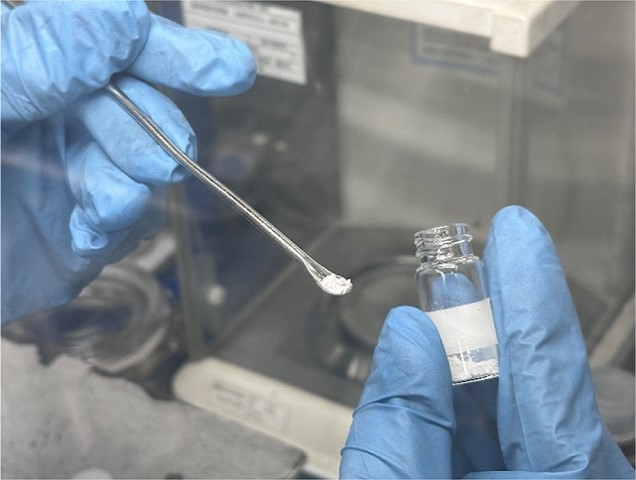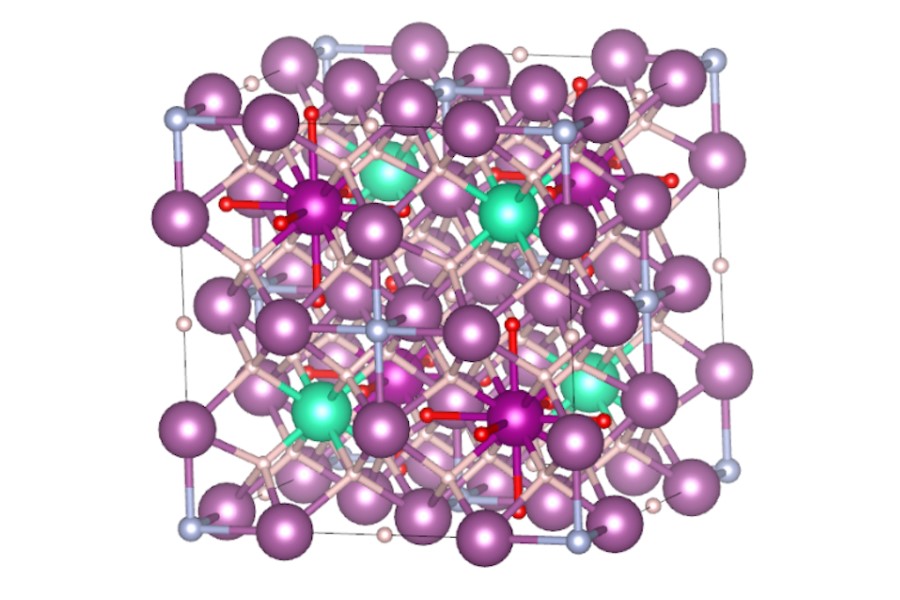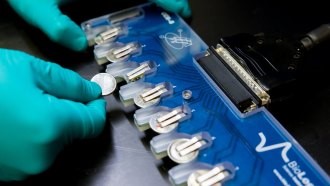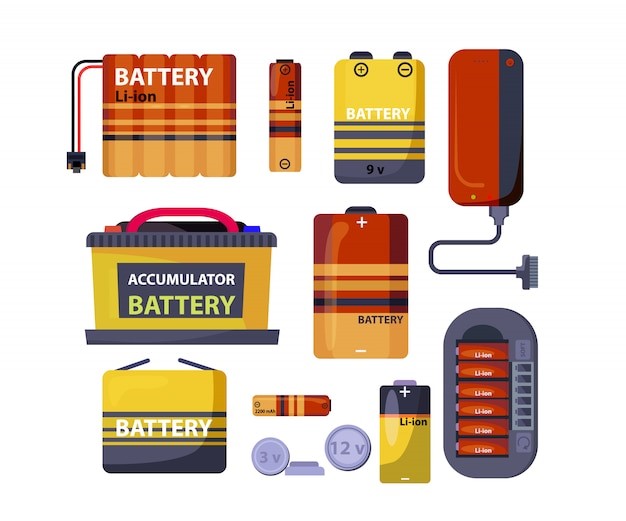Battery-Free RFID Sensors Promise Real-Time Insights for the Internet of Things
According to Dinesh Bharadia, an associate professor at UC San Diego in the Department of Electrical and Computer Engineering, “data will be the next decade’s ‘silicon.’” With the explosive growth of the Internet of Things (IoT), data is now more accessible than ever, thanks to an interconnected world of sensors, smart devices, and software that link our physical environment to the cloud. However, most of these IoT devices rely on batteries and struggle to detect changes in real time.
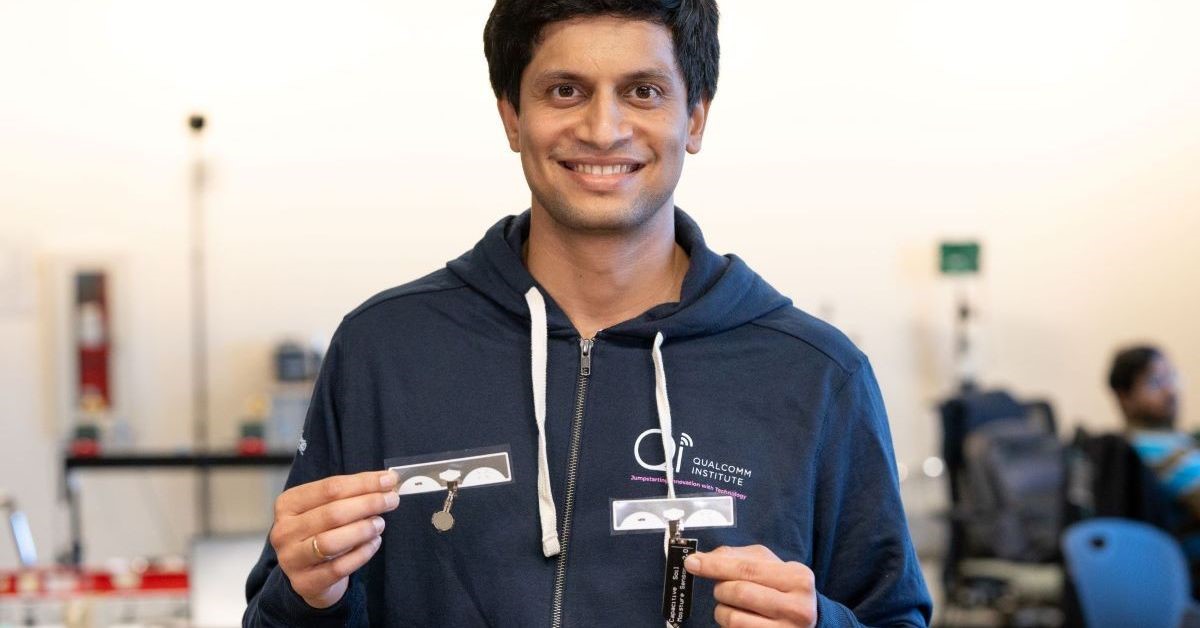
Figure 1. Battery-Free RFID Sensors. (Credit: Hana Tobias)
New research led by Bharadia and Ph.D. student Nagarjun Bhat, recently presented at the ACM Conference on Embedded Networked Sensor Systems, challenges this limitation. The study demonstrates that passive sensing — sensing without any direct power source — is not only feasible but can be achieved affordably using readily available technology [1]. Figure 1 shows the battery-free RFID sensors.
Commodity Technology, Revolutionary Results
Bhat’s work explores passive sensing through commonly available RFID tags. These low-cost tags, typically used for inventory tracking, transit fare payments, and other commercial applications, are widely accessible and inexpensive. "We wondered whether we could repurpose RFID tags to do battery-free sensing and tracking,” Bhat explained. Traditional passive sensors typically require analog-digital converters, which are power-intensive and short-lived without batteries. This approach leads to costly, bulky, and less sustainable systems.
Bhat and Bharadia, however, pursued a battery-free, real-time sensing solution. By eliminating power-hungry converters, they aimed to automate environments in a sustainable, battery-free manner. They designed RFID tags to detect environmental parameters like temperature and humidity and connect directly to the Internet of Things, feeding raw data into a reader for real-time processing.
Real-Time Data Collection Through RFID
The researchers aren’t the first to develop passive, wireless interfaces, but previous designs combined sensors, converters, and processors into single units, which proved bulky and costly. Digital sensors are limited by delays in data access, which can be problematic in applications needing real-time information, like biomedical monitoring. Bhat and Bharadia’s passive RFID sensors, by contrast, detect environmental changes instantly by directly transmitting changes in voltage/current as a wireless signal.
Choosing RFID tags for this research enabled Bhat and Bharadia to leverage a commercially available, low-cost solution without needing custom hardware. “We took the concept of analog sensing and made it real-time,” Bhat explained. "You don’t need any fancy interfaces, specialized readers, or batteries to access the data."
Paving the Way for Enhanced Data Collection
Bhat’s battery-free sensors could transform various sectors, including agriculture, sports, and urban planning. In farming, for instance, large sensor networks could monitor soil moisture at a granular level, allowing irrigation systems to optimize water usage based on real-time data. In athletics, RFID tags embedded in shoes could measure performance metrics like jumping force on the spot, making expensive lab-based tests more accessible. Passive RFID sensors could even monitor parking garage occupancy by detecting when vehicles occupy specific spaces, all without a power source.
Looking ahead, Bharadia and Bhat see these innovations as a foundation for next-gen data collection that will drive artificial intelligence. “AI is everywhere now,” Bharadia said, “and AI is powered by data enabled by sensors.” Batteryless sensors offer a unique solution to gather large volumes of previously challenging-to-access data, which will fuel advancements in AI and IoT.
Bharadia and Bhat unveiled their findings on November 5 at the 22nd ACM Conference on Embedded Networked Sensor Systems (SenSys 2024) in Hangzhou, China.
Source: University of California - San Diego
References:
- https://www.eurekalert.org/news-releases/1063822
Cite this article:
Hana M (2024), Battery-Free RFID Sensors Promise Real-Time Insights for the Internet of Things, AnaTechMaz, pp. 64


